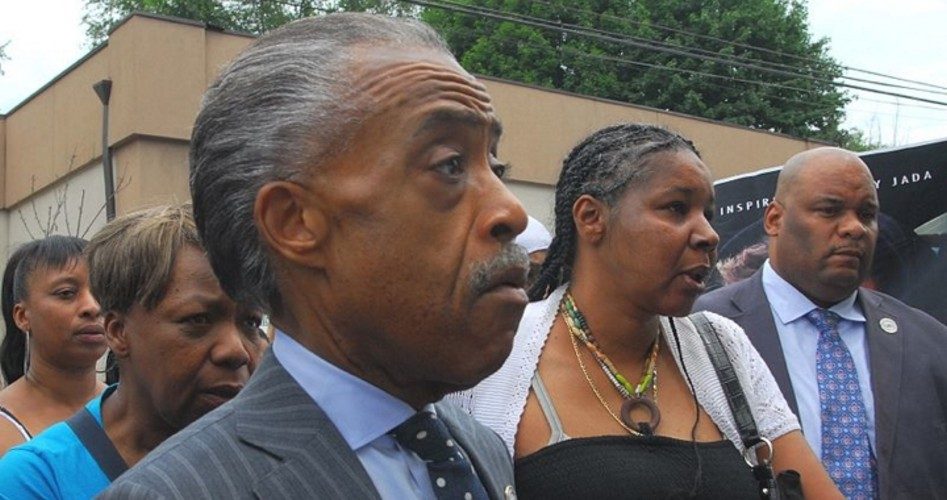
Buried in the highway spending bill just signed into law on December 4 by President Obama is this provision: “If the Secretary [of the United States Department of Transportation] receives certification by the Commissioner of the Internal Revenue Service that an individual has a seriously delinquent tax debt, the Secretary shall transmit such certification to the Secretary of State for action with respect to denial, revocation or limitation of a passport.”
It clarifies just what “seriously delinquent” means: “For purposes of this section, the term “seriously delinquent tax debt” means an unpaid, legally enforceable Federal tax liability of an individual … which has been assessed … [and] which is greater than $50,000.”
This provision, appearing on page 420 of the 490-page bill, merited top billing at the Wall Street Journal’s “Weekend Investor” in November, in anticipation that the bill would pass. It warned that investors and travelers needed to make sure they were current on their taxes or they could be barred either from traveling abroad, or from returning, if they owed more than $50,000 in taxes.
The article said nothing about Al Sharpton (shown, front).
But word got out and the alternate media (here, here, and here) speculated that the real reason behind Sharpton’s sudden cancellation of his trip to South America in January had to do with the fact that he owes the IRS and the State of New York an estimated $3.7 million in back taxes and interest. They speculated further that unless he or his various businesses ponied up the amount owed, Sharpton would just have to stay home.
That Sharpton is seriously behind on his taxes is beyond dispute. He has a long history of not paying them when due dating back to 1993 when he pleaded guilty for failure to file a state income tax return. Soon thereafter state authorities learned that one of his companies, Raw Talent, was also not paying taxes. That company remained behind in meeting its tax obligations for years.
In 2007, New York State Attorney General Andrew Cuomo began investigating one of Sharpton’s companies, National Action Network (NAN), because it had failed to file the proper paperwork required for non-profits in that state. Especially concerning to Cuomo at the time was the size of the donations made to NAN by Anheuser-Busch, Colgate-Palmolive, and others as “insurance” (read: blackmail or extortion) to prevent Sharpton’s group from boycotting them for various perceived misdeeds.
In May 2008, the Associated Press reported that Sharpton and his businesses owed $931,000 in federal incomes taxes and $366,000 in state income taxes, while another of his “non-profit” entities, this one called Rev. Al Communications, owed another $176,000 to the state.
In September 2010, the IRS filed a tax lien against Sharpton for more than $538,000 in taxes owed dating from 2009.
In November 2014, the New York Times reported that the amount owed by Sharpton and his affiliates had grown to some $4.5 million, while Sharpton had just granted himself a 41 percent pay raise — from $241,545 in 2013 to $412,533 in 2014 — from NAN while it still owed the IRS back taxes.
In October this year NAN finally coughed up $780,000 in unpaid payroll taxes dating back to at least 2003. When that occurred, Sharpton took to the airwaves to proclaim his joy over finally getting square with the tax man: “I’m glad that NAN has resolved all of our past tax debts three years earlier than our agreement with the IRS [stipulated], and paid [me] part of the compensation owed to me for several years [when] I did not receive a salary.”
When Sharpton claimed that the salary increase really wasn’t a salary increase after all but nearly a repayment of personal loans he made to his non-profit — and therefore not taxable — it raised the eyebrows of former IRS official Marcus Owens: “To structure the payoff of a loan through a salary [increase] doesn’t seem really plausible because no one would want to pay income tax on their own money coming back to them.”
It seems as if that characterization was developed after the fact for some other purpose.
According to National Review Online, “Every for-profit enterprise started by Al Sharpton … has been shut down in at least one jurisdiction for failure to pay taxes.”
Sharpton has a history of failure to pay not only the IRS and various state income agencies, but private individuals as well. According to the New York Times Sharpton has repeatedly stiffed hotels, travel agencies, and landlords, having been sued twice by his landlord for failure to pay some $98,000 in rent.
Last February Fox News took another look at Sharpton’s mounting tax liabilities:
According to a New York Times’ review of government records last fall, the MSNBC host and civil rights activist personally faces federal tax liens for more than $3 million in back taxes owed, and state tax liens of $777,657. So in total, Sharpton reportedly owes more than $3.7 million in back taxes.
His other two for-profit businesses, Raw Talent and Revals Communications, (both now defunct) owe anywhere from $717,000 to more than $800,000, based on state and federal tax liens, reports from the Times and National Review indicate. Revals Communications also either didn’t file its tax returns, or underpaid its tax bills from 1999 to 2002.
What are the chances that Sharpton, a close advisor to New York City’s Mayor Bill De Blasio as well as being President Obama’s “go-to black leader,” will have his passport revoked? Sharpton contends that what he owes are “old taxes” and therefore somehow no longer binding. Or if they are, it’s because “it’s political” and therefore not relevant.
After all, Sharpton is an FOB (Friend of Barry’s and Bill’s), and there’s always a friendly IRS to give him the room he needs to make amends. As Obama himself has said, Sharpton is “the voice of the voiceless and a champion for the downtrodden.” Those, presumably, would include the taxpayers who do pay their taxes on time, and who indirectly are forced to pay Sharpton’s as well in funding the government.
Sharpton might just wiggle out from under the highway bill’s new mandate, in time to yuk it up with Venezuela’s Marxist president Madura in January. Under “Exceptions,” the highway bill includes “A debt that is being paid in a timely manner pursuant to an agreement to which the individual is party … or has become legally unenforceable.”
For Sharpton there always seems to be a way around laws intended for the common folk. It certainly didn’t hinder his success in raising another $1 million for NAN on his birthday, thanks to gifts and contributions by companies such as AT&T, Walmart, McDonald’s, Verizon, and GE Asset Management.
Photo of Al Sharpton: Thomas Altfather Good
A graduate of an Ivy League school and a former investment advisor, Bob is a regular contributor to The New American magazine and blogs frequently at LightFromTheRight.com, primarily on economics and politics. He can be reached at [email protected].


